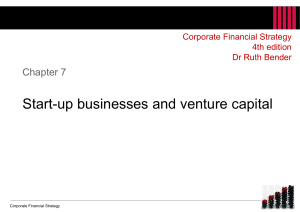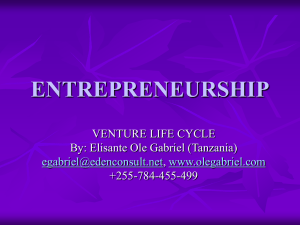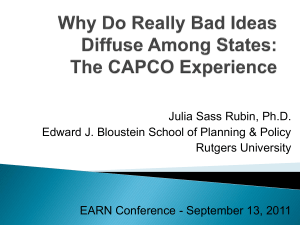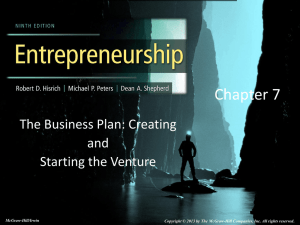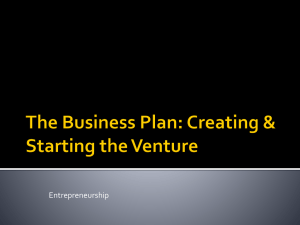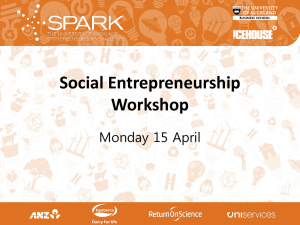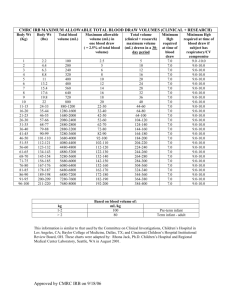Khoury UCSD (Jan 23 2013)
advertisement
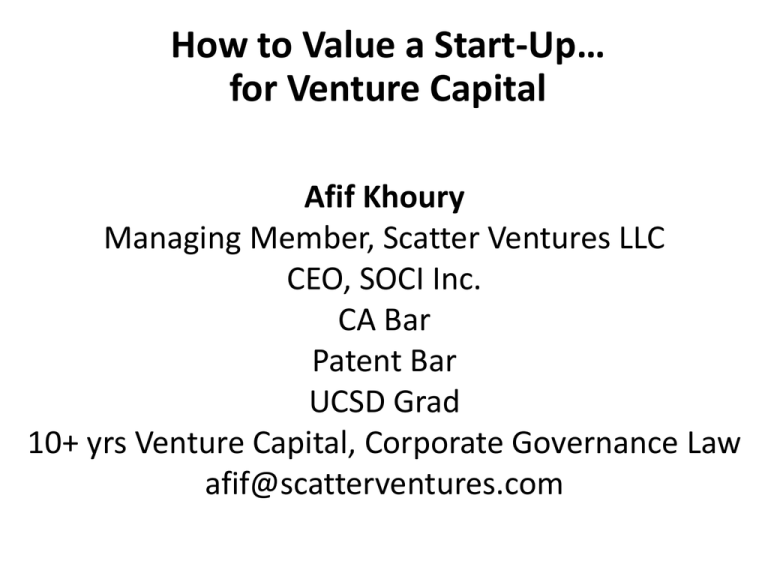
How to Value a Start-Up… for Venture Capital Afif Khoury Managing Member, Scatter Ventures LLC CEO, SOCI Inc. CA Bar Patent Bar UCSD Grad 10+ yrs Venture Capital, Corporate Governance Law afif@scatterventures.com Multiple Methods The Scorecard Method The Venture Capital Method The Dave Berkus Method The Risk Factor Summation Method The Golden Rule Subjectiveness The rules can be subjective Even more “standard” formulas may yield dramatically different results. •Strength of the Team •Size of the Opportunity •Product/Technology •Competitive Environment •Marketing/Sales Channels/Partnerships •Need for Additional Investment •Regulatory Climate •Trends By the time you are through answering these questions… The Scorecard Method 1. Determine the Avg Pre Money valuations: Look at companies in the region and business sector of target co. Assume $2N 2. Compare Target to your perception of similar deals : Strength of Management Team 0-30% Size of Opportunity 0-25% Product/Technology 0-15% Competitive Environment 0-10% Marketing/Sales Channels/Partnerships 0-10% Need for Additional Investment 0-5% Other 0-5% The Scorecard Method 3. Make the Valuation Calculation Comparison Factor Range Target Co Factor Strength of Management Team 0-30% 125% 0.375 Size of Opportunity 0-25% 150% 0.375 Product/Technology 0-15% 100% 0.150 Competitive Environment 0-10% 75% 0.075 Marketing/Sales Channels/Partnerships 0-10% 80% 0.080 Need for Additional Investment 0-5% 100% 0.050 Other (great early customer feedback) 0-5% 100% 0.050 Total 4. Multiply the sum by the Avg: $2M*1.075 = $2.15 1.0750 The Venture Capital Method LEXICON •Pre-Money: Value assigned before the investment •Post-Money: – Pre-Money + Investment – Terminal Value / Anticipated ROI •Terminal Value: Anticipated Selling Price •Anticipated Selling Price: – Industry specific multiple of revenues (2x Expected Revenues) – Expected Revenues in yr of sale (eg, $20M), which allows you to estimate earnings in the yr of sale from industry specific stats (eg, 15%, $3M earnings), which allows you to use industry specific P/E ratios to determine Terminal Value (eg, 15x)… $45M •Anticipated ROI: 27% IRR in 6 yrs (“Wiltbank Stud”)… – so need a 20x or more on 1 of 10 (assuming other 9 pay back capital) The Venture Capital Method What is the Pre-Money Valuation? Post Money = Terminal Value / Anticipated ROI $45M/20x… $2.125M Pre Money = Post Money - Investment If investment is $500K, Pre Money is $1.625M The Venture Capital Method What If Subsequent Investment Will Be Needed? Another layer of complexity and subjectiveness Pre Money x Anticipated Dilution New money dilutes 50%, then Pre Money is ~ $800K The Dave Berkus Method Dave Berkus is a founding member of the Tech Coast Angels in Southern California Characteristic Add to Pre-Money Valuation Quality Management Team Zero to $0.5 million Sound Idea Zero to $0.5 million Working Prototype Zero to $0.5 million Quality Board of Directors Zero to $0.5 million Product Rollout or Sales Zero to $0.5 million Missing some characteristics: competitive environment, IP, size of opportunity, etc. Doesn’t allow for pre-money higher than $2.5M The Risk Factor Summation Method Ohio TechAngels: The higher the # of risk factors, the higher the overall risk • • • • • • Management Stage of the business Legislation/Political risk Manufacturing risk Sales and marketing risk Funding/capital raising risk • • • • • • Competition risk Technology risk Litigation risk International risk Reputation risk Potential lucrative exit Each risk (above) is assessed, as follow: +2 very positive for growing the company and executing a wonderful exit +1 positive 0 neutral -1 negative for growing the company and executing a wonderful exit -2 very negative Add $250K for every +1, and subtract $250K for every -1 The Golden Rule He who has the gold, makes the rules There is a market standard There is an expectation on ownership Breaking the mold is hard… create competition!

